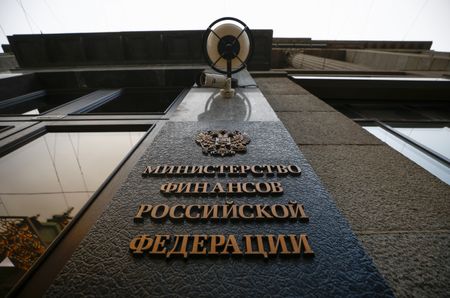 1
1 1
1
(Reuters) – Russia’s finance ministry on Thursday outlined proposals to tax people working remotely from abroad for Russian companies at the standard income tax rate even if they lose their tax residency, as Moscow looks for ways to maximise revenues.
Hundreds of thousands of Russians have fled since Moscow invaded Ukraine on Feb. 24, 2022, with a second wave following when a military call-up began in September, leaving Russia with fiscal holes to plug as it presses on with its military campaign.
The government has for months been exploring ways to solve the issue, with proposals including punitive tax rates for those working abroad and bans on remote work for some professions, neither of which have come to fruition.
The finance ministry proposed forcing non-residents to pay, but at the same rates as residents. A person loses Russian tax residency if they are abroad for more than 183 days in a calendar year.
“The issue of taxation for remote employees who work with organisations under both employment and self-employment contracts has been resolved,” Deputy Finance Minister Alexei Sazanov said in a statement.
Regardless of their status – Russian tax resident or non-resident – their income will be taxed at 13%, or 15% if it exceeds 5 million roubles ($64,333) a year, Sazanov said.
“Clarifying the types of income of remote employees and applying a unified tax rate will significantly simplify the tax administration mechanism for tax agents.”
Having relatively portable jobs, IT workers featured prominently among the many Russians who fled and the government estimated in late December that 100,000 IT specialists were working abroad.
The scale of the exodus – put at up to 700,000 people by some Russian media, a figure the Kremlin has suggested is exaggerated – has fuelled fears of a brain drain at a time when Russia is under tough Western economic sanctions.
($1 = 77.7205 roubles)
(Reporting by Darya Korsunskaya and Alexander Marrow; Editing by Andrew Cawthorne)